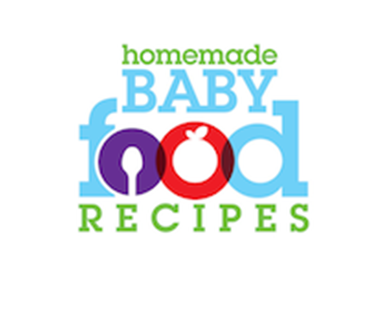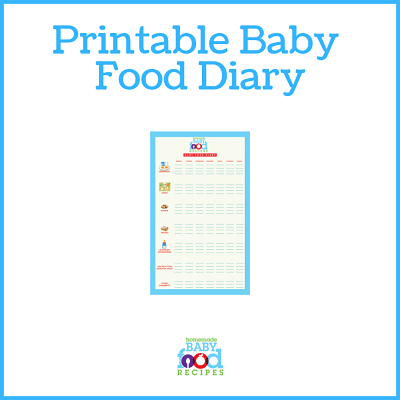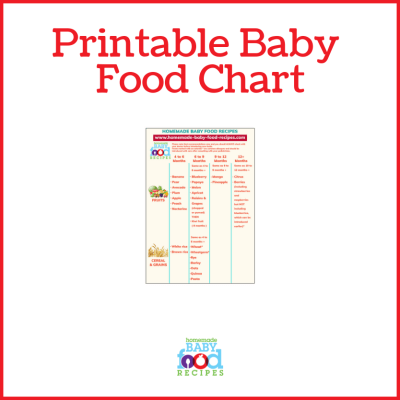Introducing Solids to Your Premature Baby
Updated: July 31, 2023
Knowing when to offer your baby solids can be confusing – but knowing when to introduce solids to your premature baby can be positively bewildering!
Guidelines set for feeding full term babies – by such organizations as the American Academy of Pediatrics, the World Health Organization and UNICEF – state that breast milk or formula meets all of an infant’s nutritional needs for the first 6 months of life.
Despite this advice, many pediatricians still recommend starting full term babies on solids at 4 months.
Pretty confusing, then, for the parents of full term babies.
But what happens if your baby was born 8 weeks early, for example?
Should you start solids at 4 months after your baby’s ACTUAL birth date, or 6 months after?
Or should you ignore baby’s actual birth date altogether and go by his adjusted – or corrected – age?
And if you DO go by his adjusted age, which guidelines should you be following… those set by the organizations mentioned above, or the advice of your pediatrician/other medical professional, which may be different?
The needs of a premature baby vary greatly from one situation to another, so there’s no ‘one size fits all’ answer to these questions.
However, the purpose of this page is to bring together the advice and experiences of other parents who have gone through the ‘minefield’ of feeding a preemie, to help you better make a decision that suits YOUR little one.
Please note – this article is for information ONLY and should not be taken as medical advice. You should ALWAYS discuss any decisions regarding your baby’s nutrition with your pediatrician or other medical professional.
Introducing solids to your premature baby – signs of readiness
There are no official guidelines for the timing of the introduction of solids to a premature baby.
And from the responses we received from the many parents we spoke to when creating this article, the advice given by doctors varies enormously!
One of the main reasons for this, of course, is that the DEGREE of prematurity plays a big part in baby’s development.
A baby born particularly early may have experienced health problems that could have an impact on his nutritional needs or ability to consume solid foods.
On the other hand, a baby born only just before he would be considered full term (at 37 weeks) may have no feeding challenges whatsoever.
So – unless your doctor suggests introducing solids early for medical reasons – this is one situation where the advice ‘Watch your baby, not the calendar’ has particular significance!
The signs of readiness for solids include…
- Baby’s ability to hold up his head
- His ability to sit well with support
- Seeming dissatisfied after milk feeds
- Showing an increased interest in YOUR food at family mealtimes
- Absence of the ‘tongue thrust reflex’ – i.e. pushing everything that is put in his mouth back out!
(Do bear in mind, though, that some preemies may have developmental delays that mean they may not display ALL these signs).
The problems with starting too soon…
Starting solids before baby is developmentally ready can be difficult, as Mum to Ryan (born 5 weeks early) is finding.
We’ve noticed only a few developmental delays here and there, but eating/feeding has its challenges.
When Ryan turned 4 months old, he went in for a check up and our pediatrician told us to start introducing cereal and solids to him.
I don’t know if it’s because I am a first time mom and this happens in all kids, or just early-born ones‚ but when I feed him, he thrusts out his tongue when I put the spoon in, so it can make it tougher to get it all in there.
I read somewhere that that could be a sign of immaturity in infants and that we may want to hold off on the solids, but I kept going anyway.
He seems to be doing better (he is now 5 months old).
The presence of the tongue thrust reflex is, as Holly discovered, a classic sign of immaturity.
Introducing solids to a preemie too early also poses a greater risk of choking, as his ability to move food to the back of the tongue and then to swallow efficiently may not be as well developed.
If your preemie is NOT your first child, then having a little experience of infant feeding can be very useful indeed.
Mum of 4 Sam, whose son Riley was born at 31 weeks, told us…
My eldest son, Luke, was a full term baby.
On my doctor’s advice, I started giving him solids at 4 months, but he gagged constantly and it was a real struggle.
With the others, I waited until they were able to pick up and chew their toys before I offered them solids which I felt was a good indication that they were ready to put things in their mouths!
With Riley, I’ve done the same thing – he’s now 7 1/2 months and just starting to show the signs… I’ve given him a few tastes of banana and he hasn’t pushed it back out, so I’m sure he’s ready.
I was told by the pediatrician to start solids at 4 months (adjusted) but I’m glad I waited… he wasn’t ready for them then.
When early weaning is recommended…
The needs of babies born very prematurely may necessitate the introduction of solids earlier than is considered usual.
bliss.org.uk is a site established 40 years ago in the UK to provide support to the parents of premature babies.
Whilst Bliss suggests that you introduce solids to your little one 5-7 months from their ACTUAL birth date, it also points out that it may even be necessary to wean earlier.
Whilst this is not usually advisable for full term babies, it’s important to remember that babies born early will not have received as much nourishment whilst in the womb as those born full term.
Common complications after birth may have prevented their ‘catching up’ on the nutrition they missed – furthermore, the gut of a pre-term baby may be less efficient at absorbing nutrients.
Thus, additional nutrition may be required for some babies, leading some doctors to suggest solid foods to provide calories above and beyond those provided by breast milk or formula.
What other parents have to say…
In general terms, most sources agree that premature babies are ready for solids by 7 months after their actual birth date.
But how does this work in practice?
We spoke to several parents of preemies about THEIR experiences with solids.
With one or two exceptions, the general consensus seemed to be that going by their babies’ adjusted ages worked better than using their actual ages as a guide.
We also found that 6 months adjusted was the most favoured point to offer solids – that being said, it’s obvious that many parents also chose to follow baby’s cues rather than dates!
Here are some of the comments we received…
From Lindsay Chase in Hull, UK…
I was told to go by my baby’s actual age, not his adjusted, because that should be seen as his ‘real’ age.
Maybe so, but developmentally he is way behind other babies of the same age.
His rate of growth is fine, so I’m waiting until his adjusted age is 6 months on the advice of another family member who did the same.
From Breanna, Alabama, US…
My doctor told us to use Brittney’s REAL age and to start solids at 6 months.
Her adjusted age will only be 4 months, which seems early to me. But if she doesn’t seem keen, I’ll just wait longer.
All babies are different!
From Karen, New Jersey, US…
Our doctor told us to start at 4 months… only 2 months adjusted.
I believed this to be wa-a-ay too early – in the end, he wasn’t ready until he was 8 months actual.
From Maribelle, Texas, US….
The neonatologist said to give our baby solids at 6 months corrected.
But I gave him mashed fruits from his REAL age of 6 months because his weight was 17.5 lbs and he just never seemed satisfied by milk alone.
He is much more content now, so it was the right thing to do.
Unless there are any special circumstances, I’d tell moms of preemies to look for their babies’ cues rather than go by dates.
From Marje, US….
Our pediatrician is great – supportive of delaying solids and extended breastfeeding.
He told me to go by baby’s adjusted age, which worked out perfectly as he’s lost the tongue thrust reflex by then and was ready for some big boy food!
From Maureen Marshall, London, England….
Premature or full term – babies need breast milk, which is packed with nutrients.
Introducing solids means they take less milk – so why give them too early?
I’m waiting until my daughter is AT LEAST 6 months corrected – and my GP agrees.
From Phillipa, Gravesend, UK….
I want to wait until 6 months adjusted and our GP is supportive.
She told me that starting a bit earlier would not be harmful, but I’m not in a hurry to do so.
My son is a bouncing 15 lbs now so my milk is obviously giving him all he needs.
From Barbara Hyde Evans, US….
My pediatrician suggested my son, Sam (born at 28 weeks, 2lbs, 14oz) start solid foods at 6 months which was 3 months adjusted.
Sam was not a strong enough breast feeder and had a lot of trouble digesting formula.
He wasn’t gaining weight fast enough.
He took to solids easily and started gaining faster. It was a big success.
From Peter Emmenegger, Toronto, ON….
Our daughter, now 6, was born at 26 weeks and we always used corrected age BUT up to the age of 3 & not 2 as was recommended.
Do what makes sense in your own heart after you are well informed!
We generally followed regular guidelines with a 3 month corrected age as recommended by the paediatrician.
Introducing solids to your premature baby – other considerations
Allergies
One important point in favour of delaying solids until AT LEAST 17 weeks is to prevent the development of eczema.
Research conducted in 2004 showed that pre-term infants given four or more types of solids before 17 weeks were three times more likely to develop eczema by 12 months than those given milk alone.
Of course, all babies should be carefully monitored when new foods are introduced for any signs of allergic reaction.
This page includes a list of some of the more common allergens, which should be introduced with care and under the supervision of your child’s doctor.
Reflux
Infant reflux is often a problem in premature babies, particularly if they were tube fed whilst in hospital.
Sometimes, the problem doesn’t become apparent until solid foods are introduced – but, in other cases, solids are actually recommended to help control reflux when baby is regularly spitting up after milk feeds.
We have tips for introducing solid foods to a baby with reflux here – which includes foods that many parents find contribute to reflux flare ups.
Iron
The amount of iron stored in a baby’s body at birth depends largely on the time spent in the womb.
Premature babies, therefore, tend to have lower stores of iron at birth than full term babies (see Table 1 – Risk Factors for Iron Deficiency in the First Year of Life).
Iron plays a crucial part in your baby’s growth, the development of his brain and the formation of the red blood cells that carry oxygen around his body.
Your baby may be given iron supplements, or your pediatrician may suggest that you introduce iron-rich solids in order to increase your little one’s iron intake and ensure that his levels are sufficient for his needs.
Although the iron from breast milk is easily absorbed, it may not be enough for a premature baby (we have more information about iron here, although please do note that some of the facts given apply – as stated – to full term babies).
New research has suggested that meat may – in fact – make an ideal first food for babies because it is such a rich source of iron.
You can read more about how to introduce meat to baby here – but please discuss this option with your doctor before offering meat to your little one.
Amber, Mum to 4 year old Hannah, told us…
My daughter Hannah was born at 34 weeks gestation, healthy but small.
She didn’t have any particular health concerns or issues, and gained weight well.
I decided to offer her solids for the first time at 6 1/2 months, which was a compromise between her actual and adjusted age.
She displayed some of the signs of readiness, but not all of them.
The health professionals I’d spoken with, including public health nurses and our family doctor, recommended starting solids at 6 months.
There were some concerns about her nutrient stores, particularly iron, since those are built up in the 3rd trimester of pregnancy.
Premature babies don’t have the same stores and so they are at greater risk of deficiency.
To avoid that they suggested introducing iron-rich foods sooner rather than later.
I think I pushed solids a little bit more aggressively than I should have because I was worried about Hannah becoming anemic.
I decided to make my own baby food, and offered her sweet potatoes to start with.
I also tried some fruits, squash, and meat. My baby really wasn’t interested, though.
After a couple of weeks I decided to hold back on the solids and give her an iron supplement.
It was really a huge relief to not worry about getting food into her, while knowing that her need for iron would be met.
Hannah never had any digestive or other problems with solids, she just refused them.
It was very stressful feeling as if she ‘needed’ to eat.
I didn’t want to force her or create food issues, so for us the supplement was a good compromise.
I re-introduced solids when Hannah was nearing 8 months, and she was much more interested.
This was closer to her adjusted age of 6 months.
Today Hannah is a healthy, normal 4-year-old.
And she still doesn’t like sweet potatoes.
Sometimes I wonder if their early introduction scarred her, but then I remember I don’t like them either, so I can’t really blame her.
Gagging
Some preemies have a particular problem with gagging.
This is known as a hyperactive gag reflex or oral hypersensitivity, a condition that can sometimes be overcome with the slow and careful introduction of texture, but which may require help from a speech therapist.
Some sources – including bliss.org.uk – suggest that solids are not introduced later than 7 months after a baby’s ACTUAL birth date, in order to avoid sensory issues like this.
However, like so many other aspects of solid feeding, it seems that it really depends on the individual!
Angie from Horsham in the UK found that her daughter, Lily, struggled with texture…
She would only eat pureed foods until she was 12 months of age and flatly refused to swallow anything lumpy.
She would not eat finger foods and had to be spoon fed.
Our GP referred us to a therapist who worked with us for several weeks and I’m now seeing a big improvement.
But Rene from Miami, US, did not find that delaying solids presented any problems with her baby’s acceptance of texture…
I read that solids were needed between 5 to 7 months, or that babies would not eat textured foods, but my pediatrician disagreed, saying that my son’s gut would not have matured as quickly as a full term baby and I should wait until 6 months adjusted.
So he was – in real age – 8 1/2 months when he started and he had no problems with texture at all – in fact, he moved on quickly from pureed to mashed foods.
If your little one is experiencing problems with texture, then we have lots of tips you may find useful on our Baby Feeding Problems page.
The best first foods
These may depend on your baby.
In some situations, certain high calorie foods may be recommended by your doctor, as opposed to the usual fruit or veggie purees.
Or you may be advised to offer your baby particularly iron-rich or iron-fortified foods (as mentioned above).
We take a look at all the options for baby’s first foods here – The Best First Food For Baby.
How much food should I give my baby?
When introducing solids to your premature baby, it’s a good idea to offer them ‘little and often’.
Your doctor may suggest that these foods be nutrient dense and calorie rich, so the small amount that your baby does consume are as beneficial to him as possible.
In most situations, it is better to offer milk before solids at each meal.
Always respect your baby’s cues during mealtimes – and when he is displaying signs of fullness, don’t urge him to eat more than he wants, or you risk turning feeding times into a battle ground!
We include the typical signs to look for in determining whether or not your little one has had enough food on this page – How Much Should My Baby be Eating? – although please note that not all this information may apply to babies born early.
The best person to advise you about the right quantity of food for YOUR little one is your doctor.
When should my premature baby start cow’s milk?
Full term babies are usually introduced to cow’s milk as a ‘main’ drink from 12 months of age.
However, the parents of preemies are usually advised to offer their little ones cow’s milk at 12 months adjusted/corrected and NOT at their real age of 12 months.
Formula and breast milk are higher in iron and the other nutrients your baby needs than cow’s milk. Please seek specific advice from your doctor.
Whole milk
It is generally recommended that babies are given whole milk (or full fat milk) because it supplies the fats necessary for the healthy development of the brain and help support their rapid rate of growth.
See Why Babies Need Whole Milk and Fats for more information.
This recommendation is equally – if not more – important for preemies.
However, Margaret from Seattle, US, told us…
Shannon (born 8 weeks early) suffered from infant reflux on and off throughout her first year.
We were told to give her whole milk at 15 months, but she began spitting up and vomiting much more often.
On the advice of our pediatrician, we switched to semi-skimmed milk and this has been a big help.
If your child has a tendency towards reflux, then you should discuss the pros and cons of introducing whole milk with your doctor.
More tips for introducing solids to your premature baby
- Do not add salt to baby’s food.
This is true for all babies – but particularly so for those born early.
Here’s why salt should be avoided and here’s some information about adding flavour without adding salt! - Because your preemie may have particular dietary needs, speak to your pediatrician if you plan to introduce him to a vegetarian diet.
- Watch your baby carefully for any signs of allergy or intolerance.
An overview of common food allergy symptoms is given here.
Be sure to tell your doctor if there is any history of food allergy in your family. - Tell your doctor if your baby experiences diarrhea – which may indicate that some nutrients are not being properly digested – or if blood appears in his stool.
This may be a sign of an intolerance to protein. - Let your doctor know if your baby becomes constipated – this can happen if your preemie had problems with his digestive system, stomach surgery or other feeding problems.
We have some tips for relieving baby’s constipation here. - Use breast milk whenever possible to mix with your baby’s foods – to thin a puree, for example, or to mix with cereal.
It provides more nutrients than using water.
Sources and for more information
Caring for your premature baby
Your experiences and advice are invaluable – please contribute to this page
With so much conflicting advice about introducing solids to your premature baby, reading the advice and experiences of other parents who’ve been in the same situation can be immensely helpful.
If you have a story to share, advice for other parents, a question or anything else to contribute to this page, then please complete the simple form below.
You can even add a photo, if you wish!
If you have ANY problems in using this form, then please let us know – we value your contributions and want to be sure we receive each and every one.
Please note:
We check all submissions to our website prior to publication to ensure that content is original. All submissions are considered to be from non medical professionals – if you are a medical professional and choose to submit any information for publication on our website, you must identify your professional status. We require that all submissions are respectful and honest – submissions containing inappropriate content will not be published. You must be at least 18 years old to submit your experiences and comments to this website. The information given here is not intended to replace the advice of a health professional.
What Other Visitors Have Said
Introducing Solids to a Premature Baby – Mom Knows When the Time is Right!
My second born was 4 weeks early. Thank goodness for already having a child and for having many mommy pals. At the 6 month checkup, one of the pediatricians …
Starting Solids for Premature Babies
Charlotte was born at 27 weeks and started solids at 19 weeks old on advice from her consultant. She is much happier now – before starting solids she …
More Tips and Advice...
Baby’s first foods – our main guide to introducing solids
Tips for introducing solids at 4 to 6 months




